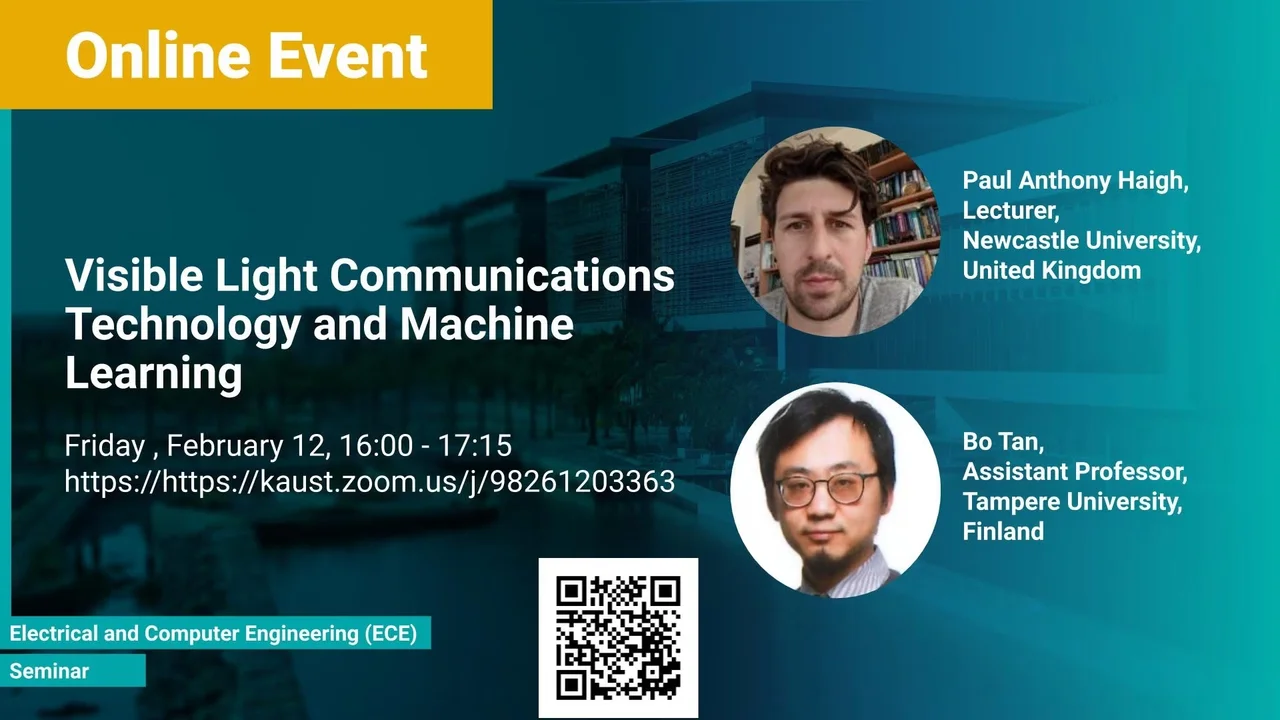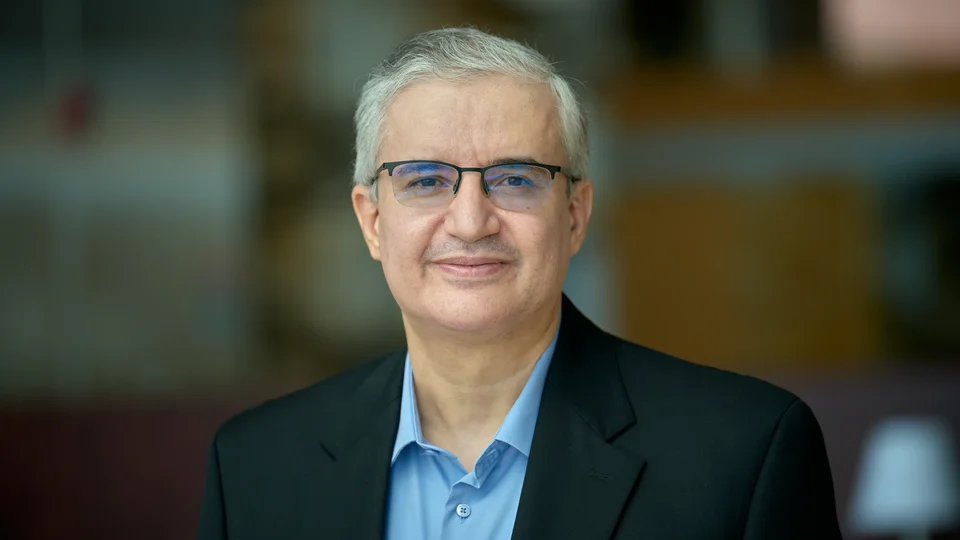
Visible Light Communications Technology and Machine Learning - 2021-02-12
- Dr. Paul Anthony Haigh, Newcastle University, United Kingdom and Dr. Bo Tan, Tampere University, Finland
KAUST
In this webinar we will give an overview of several key technologies related to our special issues in Frontiers of Communications and Networks; (1) visible light communications (VLC) and (2) applications of machine learning in optical and wireless communication systems.
Overview
Abstract
In this webinar we will give an overview of several key technologies related to our special issues in Frontiers of Communications and Networks; (1) visible light communications (VLC) and (2) applications of machine learning in optical and wireless communication systems. Firstly, several key research challenges have emerged within the VLC domain, including multi-technology network tenancy, high data rates, physical layer security, resource allocation, co-design of high-speed data rates and dimming capabilities, amongst others. Future networks are expected to support a wide range of heterogenous technologies beyond 5G and one of the most promising is VLC, which can support ultra-high data rates while providing illumination simultaneously. However, there are some key challenges that still remain and the vast majority of them concern real integration and some of these will be discussed in detail through the webinar. Secondly, artificial intelligence (AI) and machine learning (ML) have attracted increasing research interests and are ubiquitously emerging at different levels within optical communication systems and networks. From physical layer to subsystem layer, and to networking layer, we have observed the increasing complexity of optical communication systems due to higher-speed data transmission, more flexible networking and larger scale of connections under different use scenarios. The second part of this webinar will also discuss research on novel applications in optical and wireless communication systems and networks, including state-of-the-art developments from the respective laboratories.
Brief Biography
First Speaker: Paul Anthony Haigh, Newcastle University, United Kingdom
Speaker’s biography: Paul Anthony Haigh received the B.Eng. and Ph.D. degrees from Northumbria University, Newcastle upon Tyne, UK, in 2010 and 2014, respectively. He is a Lecturer in communication at Newcastle University, UK since March 2019. His research interests broadly include digital signal processing in communications and sensing systems and his medium of choice has generally been optical wavelengths, particularly visible light. From 2016 to 2019, he was a Research Fellow with the Information and Communications Engineering Group, University College London, UK. He joined UCL from the High-Performance Net-works Group, University of Bristol, where he was a Senior Research Associate. He is currently the Associate Editor of Frontiers in Communications and Networks, IET Electronics Letters and a Section Editor of MDPI Sensors (Communications). From 2010 to 2011, he held the prestigious Marie Curie Fellowship at the European Organization for Nuclear Research (CERN).
Second Speaker: Bo Tan, Tampere University, Finland
Speaker’s biography: Dr Bo Tan received the B.Sc and M.Sc degree in communications engineering, Beijing University of Posts and Telecommunications, in 2004 and 2008 respectively, received PhD from Institute for Digital Communications, the University of Edinburgh, UK, in 2013. From 2012 to 2016, he was the postdoc research associate in University College London and University of Bristol, UK. He was a lecturer (Assistant Professor) in Coventry University during 2017 and 2018. From 2019, he is a Tenure Track Assistant Professor at Tampere University, Finland. His research is mainly on signal processing in radar and wireless communications systems, also machine learning methods of sensing data and application in intelligent machines. His research has led to 50 academic publications and US patent. He is the member of IEEE and ACM, active reviewer of multiple IEEE and IET journals in sensing and communications.
